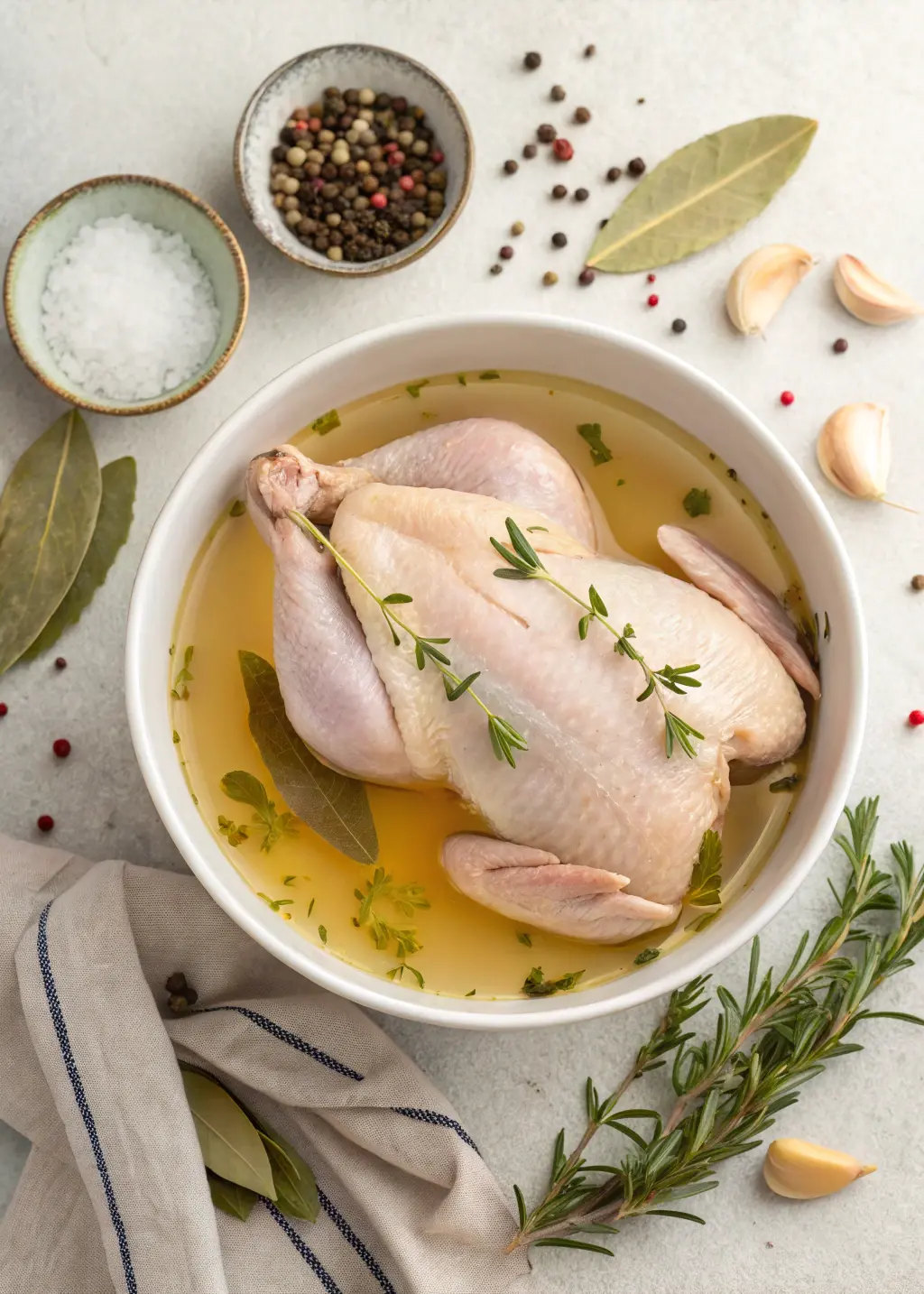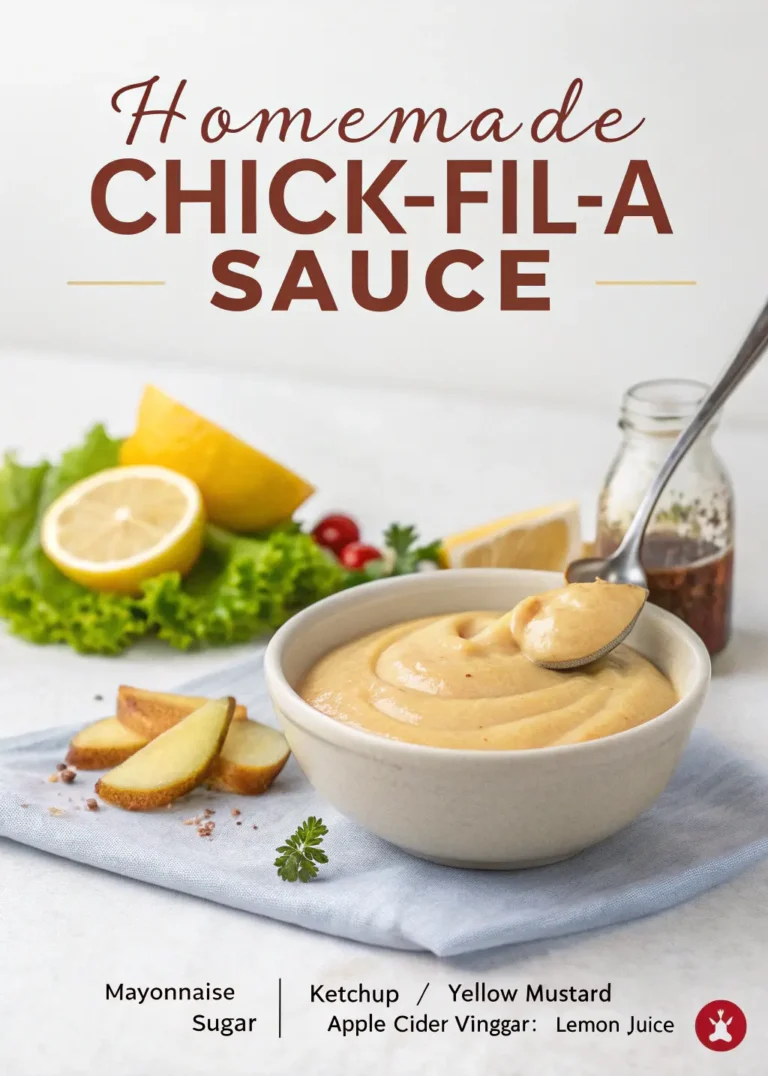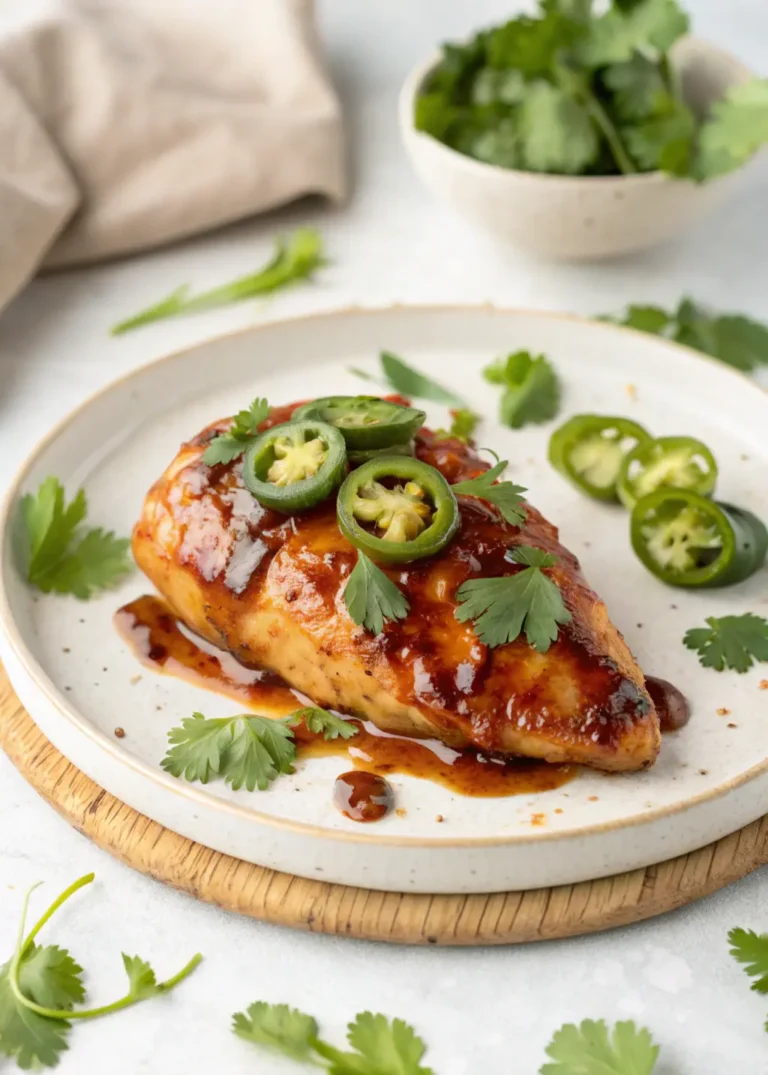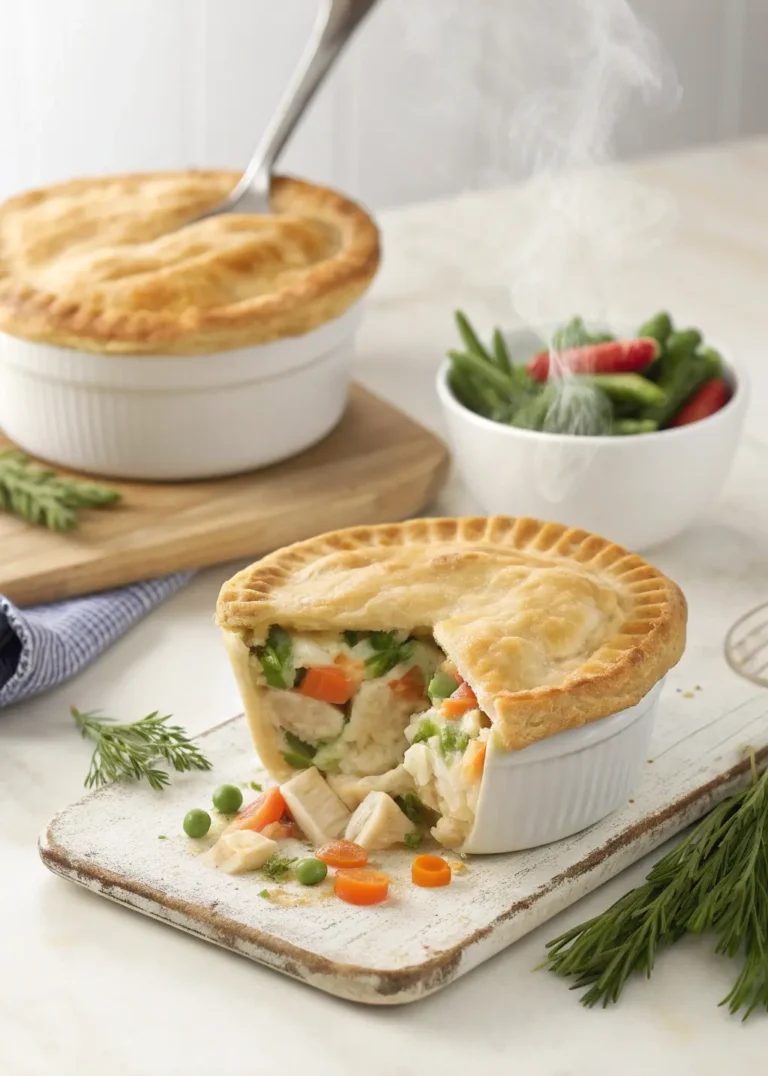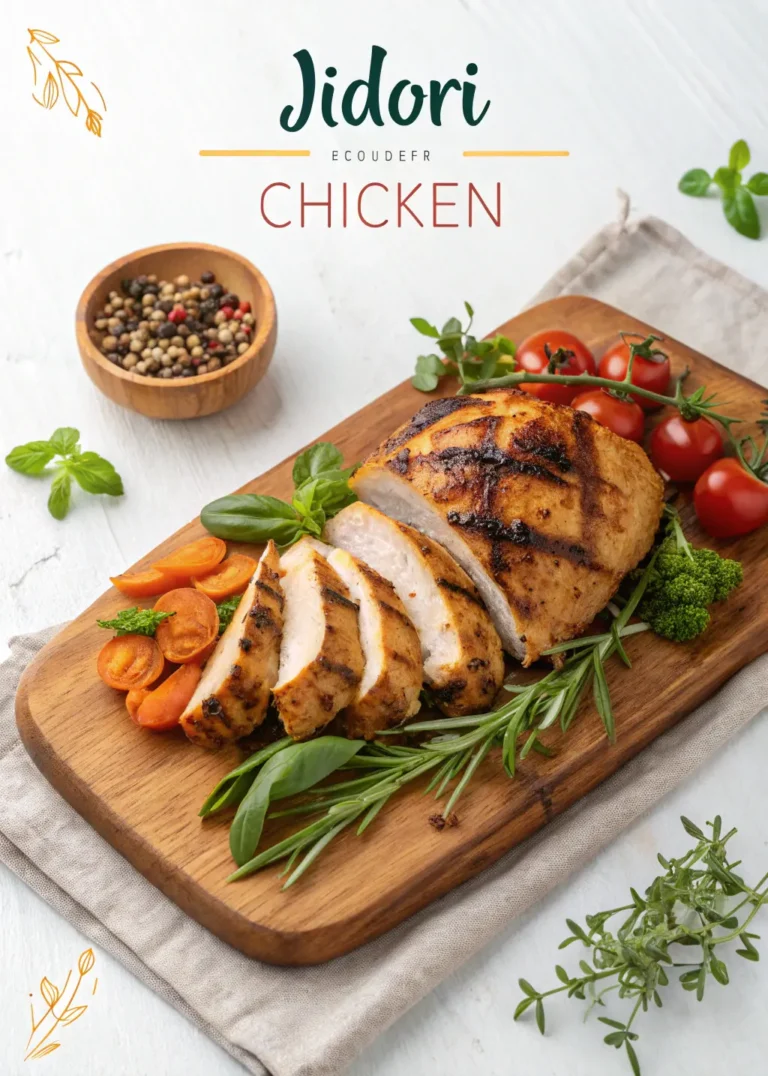The Ultimate Easy Chicken Brine Recipe: Transform Your Roasts into Juicy, Restaurant-Quality Masterpieces in 2025
Picture this scenario: Sunday dinner approaches, and your family gathers around the dining table with anticipation gleaming in their eyes. As you carve into that golden-brown roasted chicken, the meat surrenders effortlessly to your knife—tender, succulent, and radiating with flavor that makes everyone pause mid-conversation. Those appreciative murmurs and requests for seconds tell you everything: you’ve cracked the code that separates ordinary home cooking from extraordinary culinary experiences.
If you’ve previously served lackluster chicken that required drowning in sauce or left guests politely nibbling around the edges, take heart. The secret that transforms mediocre poultry into memorable meals isn’t expensive equipment or complex techniques—it’s one fundamental step that professional chefs have employed for generations. Today, you’ll master how a proper chicken brine revolutionizes your cooking and elevates every roast into a celebration-worthy centerpiece.
Table of contents

What Is Chicken Brine and Why Does It Work? (Science Made Simple)
Understanding chicken brine begins with grasping the fascinating science behind salt’s transformative power. When you submerge chicken in a saltwater solution, osmosis drives salt molecules deep into the meat fibers, fundamentally altering the protein structure. This process breaks down tough muscle fibers while creating a moisture-retaining network that locks in juiciness throughout the cooking process.
The magic happens at the cellular level. Salt draws out moisture initially, then that same liquid—now enriched with salt and flavor compounds—gets reabsorbed back into the meat. This creates a self-basting effect that prevents the dreaded dry chicken syndrome that plagues so many home cooks.
Research from culinary institutes demonstrates that properly brined chicken retains up to 40% more moisture compared to unbrined alternatives. Professional chefs understand this principle intimately, which explains why restaurant chicken consistently outperforms home-cooked versions in both flavor and texture.
The Complete Easy Chicken Brine Recipe (Perfect Every Time)
Essential Ingredients for the Best Chicken Brine
Your foundation for exceptional chicken brine requires just a handful of accessible ingredients that work synergistically to create depth and complexity:
| Ingredient | Amount (4-5 lb chicken) | Purpose | Alternative Options |
|---|---|---|---|
| Water | 8 cups | Base liquid | Apple cider (partial replacement) |
| Kosher Salt | 1/2 cup | Primary brining agent | Sea salt (reduce by 25%) |
| Brown Sugar | 1/4 cup | Flavor balance & browning | Maple syrup, honey |
| Bay Leaves | 3-4 leaves | Aromatic foundation | Fresh thyme sprigs |
| Black Peppercorns | 1 tablespoon | Spice complexity | Crushed red pepper |
| Garlic Cloves | 4 cloves, crushed | Savory enhancement | Garlic powder (1 tsp) |
| Fresh Herbs | 2 sprigs rosemary | Aromatic finish | Dried herbs (1 tsp each) |
Step-by-Step Chicken Brine Instructions
Creating your perfect chicken brine involves precise timing and technique. Follow these detailed steps for consistent results:
- Dissolve Your Salt Foundation (5 minutes)
- Combine kosher salt with 2 cups warm water
- Stir vigorously until salt completely dissolves
- This prevents grainy texture in your final brine
- Incorporate Flavor Elements (3 minutes)
- Add brown sugar, stirring until dissolved
- Introduce bay leaves, peppercorns, and crushed garlic
- Blend in fresh herbs for aromatic complexity
- Complete the Dilution (2 minutes)
- Pour in remaining 6 cups of cold water
- Stir thoroughly to distribute all components evenly
- Taste-test for balanced salinity
- Cool Completely (30 minutes minimum)
- Allow brine to reach room temperature
- Refrigerate if necessary to achieve 40°F or below
- Never add warm brine to raw chicken
- Submerge Your Chicken (proper technique)
- Place chicken in non-reactive container or food-grade bag
- Pour brine over chicken, ensuring complete coverage
- Weigh down if necessary to prevent floating
- Refrigerate and Monitor (4-24 hours)
- Store in refrigerator throughout brining period
- Maintain consistent temperature below 40°F
- Avoid disturbing during process

Chicken Brine Timing Guide: How Long Should You Brine?
Timing determines the difference between perfectly seasoned chicken and over-brined disappointment. Your chicken’s size and type dictate optimal brining duration:
| Chicken Type | Weight Range | Minimum Duration | Maximum Duration | Sweet Spot |
|---|---|---|---|---|
| Whole Chicken | 3-4 lbs | 4 hours | 12 hours | 8 hours |
| Whole Chicken | 4-6 lbs | 6 hours | 18 hours | 12 hours |
| Chicken Pieces | 2-3 lbs | 2 hours | 8 hours | 4 hours |
| Chicken Thighs | Per pound | 1 hour | 6 hours | 3 hours |
| Chicken Breasts | Per pound | 30 minutes | 4 hours | 2 hours |
Understanding these timeframes prevents common brining mishaps. Under-brining leaves you with inadequately seasoned meat, while over-brining creates mushy, overly salty results that no cooking technique can salvage.
Pro Tips for Perfect Chicken Brine Results
Advanced Flavor Variations for Your Chicken Brine
Once you’ve mastered the basic technique, experiment with these sophisticated flavor profiles:
- Mediterranean Enhancement: Fresh lemon zest, oregano, and a splash of olive oil create bright, herbaceous notes
- Asian-Inspired Blend: Soy sauce, fresh ginger, and star anise deliver umami richness with aromatic complexity
- Southern Comfort Style: Buttermilk base with hot sauce and fresh sage brings tangy heat with earthy undertones
- Holiday Spice Mixture: Orange peel, cinnamon sticks, and whole cloves infuse warm, festive aromatics
- Garden Fresh Version: Chopped basil, parsley, and chives provide vibrant, summery brightness
Common Chicken Brine Mistakes (And How to Avoid Them)
Learning from these frequent missteps saves you time, ingredients, and disappointment:
- Incorrect Salt Proportions – Measure precisely using weight rather than volume for consistency
- Temperature Neglect – Always cool brine completely before adding chicken to prevent bacterial growth
- Extended Brining Times – Set timers and stick to recommended durations to avoid texture degradation
- Skipping the Drying Step – Pat chicken completely dry before cooking to achieve proper browning
- Brine Reuse Attempts – Discard used brine immediately to prevent cross-contamination
From Brine to Roast: Cooking Your Perfectly Brined Chicken
Your brined chicken requires specific cooking considerations to maximize the enhanced flavor and moisture content. Remove chicken from brine 30 minutes before cooking, allowing it to reach room temperature while you pat the surface completely dry.
Temperature control becomes crucial with brined chicken. Start your oven at 425°F for the first 20 minutes to encourage browning, then reduce to 375°F to finish cooking without overcooking the now-tender meat. Use a reliable meat thermometer to monitor internal temperature—brined chicken often cooks faster than expected.
The ideal internal temperature reaches 165°F for breast meat and 175°F for thigh meat. Remember that carryover cooking continues after removal from heat, so consider pulling your chicken 5 degrees before target temperature.
Frequently Asked Questions About Chicken Brine
Can table salt substitute for kosher salt in chicken brine recipes? Yes, but reduce quantities by approximately 25% since table salt contains anti-caking agents that make it more concentrated than kosher salt.
How do you recognize properly working chicken brine? Your chicken should feel firmer after brining, with meat appearing slightly more opaque and having a subtle sheen.
Is chicken brine reusable for multiple batches? Never reuse brine that has contacted raw chicken due to food safety concerns and bacterial contamination risks.
What happens with excessive chicken brine exposure? Over-brined chicken develops mushy texture and excessive saltiness that cannot be corrected through cooking methods.
Should you rinse chicken after brining? Simply pat dry with paper towels—rinsing removes beneficial flavor compounds you’ve worked to incorporate.
Can wine or beer enhance chicken brine recipes? Absolutely! Replace up to 25% of water with wine or beer for additional flavor complexity without compromising the brining chemistry.

Master the Art of Chicken Brine for Life
Your journey toward consistently exceptional chicken begins with understanding this transformative technique. This easy chicken brine recipe represents more than another cooking method—it’s your pathway to impressive meals that generate genuine excitement around your dining table.
The combination of proper technique, quality ingredients, and precise timing creates results that rival professional kitchens. Whether preparing intimate family dinners or hosting special gatherings, this method guarantees juicy, flavorful outcomes that exceed expectations every time.
Start with these foundational recipes, then develop your signature variations as confidence grows. Soon you’ll create personalized brines that reflect your unique taste preferences while maintaining the scientific principles that ensure success.
Ready to transform your chicken game forever? Gather your ingredients tonight and prepare your first batch of this life-changing chicken brine—your taste buds (and dinner guests) will thank you for making this commitment to culinary excellence.
Have you given our recipe a try?
There are no reviews yet. Be the first one to write one.

